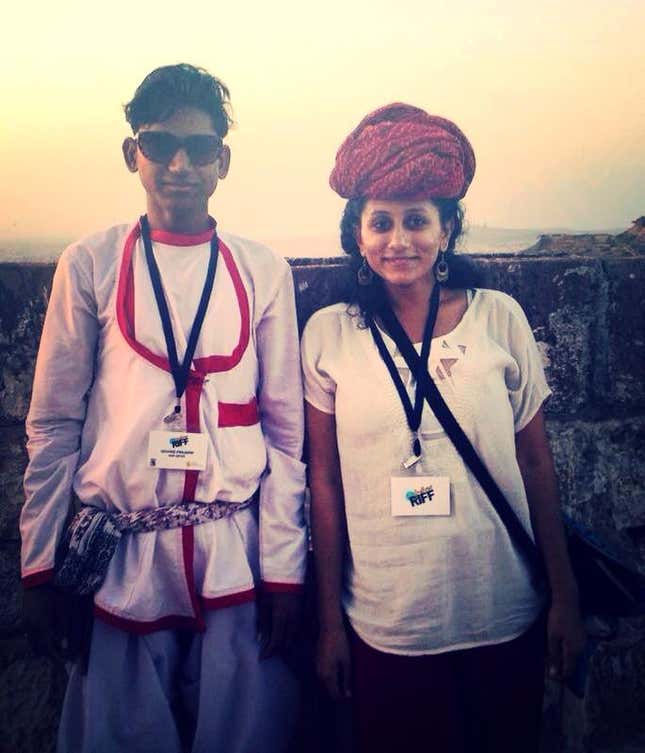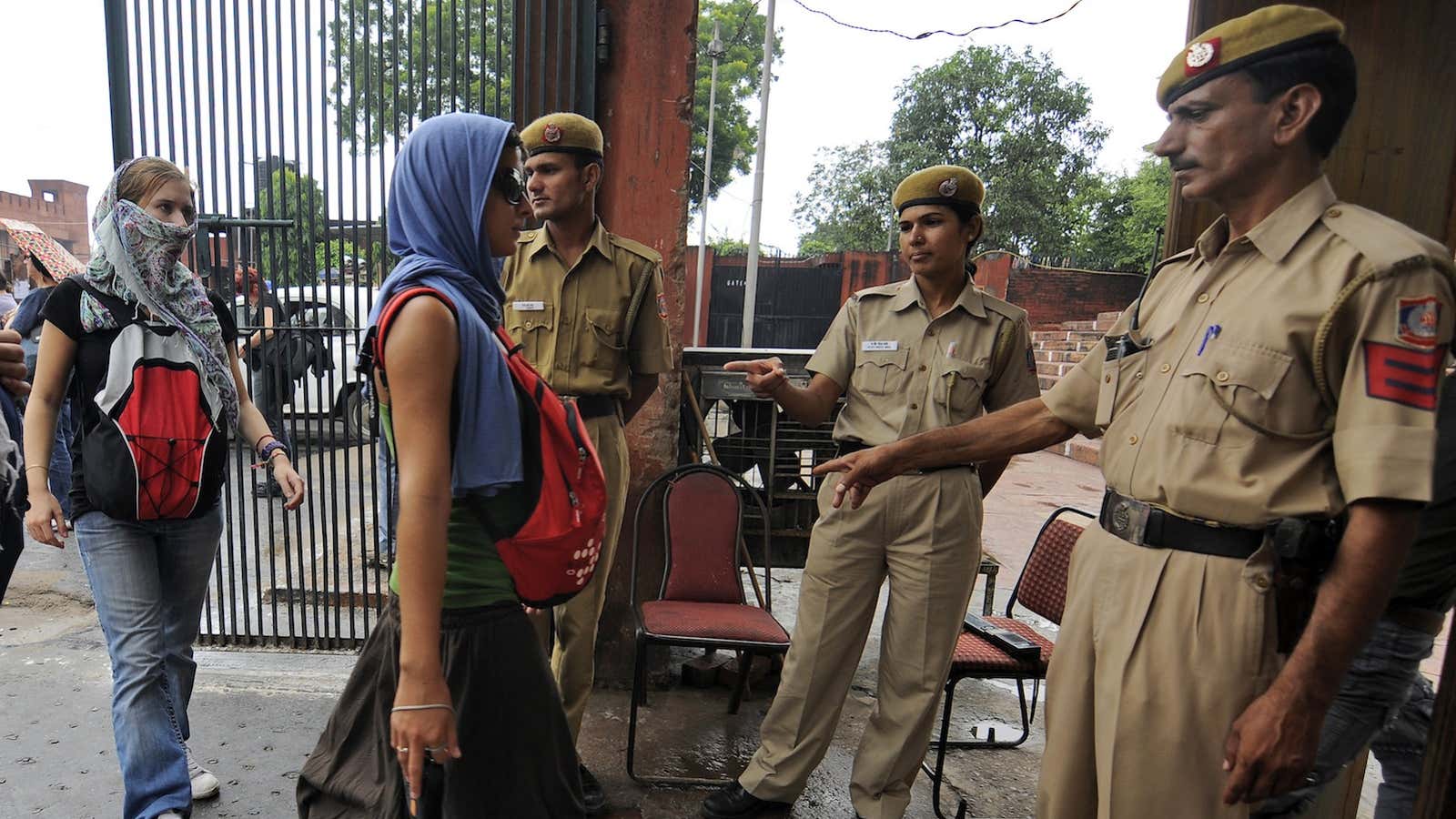Liberation comes with not quite fitting in. Mess up the chai? Forget your dupatta? Accidentally skip a long line to interview a government official? An American accent and a bashful, “Sorry, I didn’t know” shrug go a long way.
But as an Indian-American based in Mumbai, the benefits of living in a country where I look like the people in the crowds on the street, and can speak Hindi well enough (she must be from another state, people guess), are even more powerful.
Aunties accept my offers to help with the cooking. I can spontaneously engage little kids in a Hindi nursery rhyme. And I remind an old Bengali couple on the train of their daughter. I’m an Indian woman first and everything else after.
Navigating this balance for the two-and-a-half years I’ve lived in India has been a privilege—and I don’t use that word lightly—but it’s not always easy.
As a freelance reporter, my life here can be one of extremes. I’m either traversing tribal Orissa in a shared jeep with squawking chickens, or taking an Uber to a party in Mumbai, where I listen to the same music as I did back in D.C. Sometimes I’m eating millet from a backyard garden in Chhattisgarh while researching for an article, while other times I’m spreading JIF peanut butter on bread to go with my glass of organic almond milk.
Last year, I stayed with a large Punjabi family in a village near the border of Pakistan with my colleague from Nepal and became acutely aware of my double identity. The head of the family—a chatty, middle-aged guy named Prabdeep—was all too eager to parade me around as a foreigner staying in his home. In the middle of our research and reporting, he somehow convinced me on the spot to give a five-minute talk to a church about AIDS/HIV awareness. And while I was still forced to sit sideways (lady-like) on motorcycles, I was assertive during our meetings and interviews.
Back at his home, a small compound of rooms and a buffalo shed, Prabdeep’s sister-in-law, Pali, was the perfect antidote. She was a wisp of a woman who spent the entire day washing clothes, cooking chapatis, and taking care of the family. And there were harsh limits to her domain—she had been married off to a cousin as a teenager when her parents passed away in an accident.

After the initial day in the village, I convinced Pali to let me join in with my sugar-sweet Hindi and decent dough-rolling skills. Those moments with her and the other women of the household—squatting in a tiny kitchen, or scrubbing steel pots—led to deep conversations and a seamless connection. I was fully aware of our differences, the things I didn’t have to do and wear since I didn’t belong. But I was also grateful to be able to cast off my guest status for a few hours each day, and learn from a woman with grace that I have yet to find within myself.
Working across India has slowly chipped away at the naivety and entitlement that so quickly accompany expat life—which can become a little bubble of America in the Mumbai suburbs, if that’s what you want. There’s nothing as humbling as being lost and at the mercy of strangers around you in the middle of rural India, especially when you’re down with dysentery. Or checking your anger when you have to wait eight hours for a train. That awareness has made me pick my battles more wisely than when I arrived.
My choice
Last week I travelled through Coorg, a misty hill station in Karnataka, with my cousin from New Jersey. We visited dozens of monuments and forest parks where I easily paid an Indian citizen’s price for tickets—not the exponentially higher foreigners fare. My cousin—who hasn’t quite mastered Hindi or the Indian head bobble—would stay in the car when I went up to the counters. I didn’t feel guilty about it for one second.
During our trip, I made sure to leave a decent tip after meals and drinks, not as common a practice in India, and didn’t fight with the driver when he told us his hefty fare. I knew we were paying more for things than native Indians probably would have, and I was okay with that—I earn mostly in dollars, and this wasn’t my territory.
Knowing where my paycheck comes from, and where exactly my votes count and my passport is renewed, my words will always be those of an outsider. It doesn’t matter that my parents were born on this soil, or that I’ve gone to corners of the country that my family in India would never go—the fact is that my time here is temporary, and I haven’t committed to being part of any community where I can fully contribute or consume. I can write about corruption and inequality and the subtle but intense complications of being a woman in India, but I will always have a ticket out if I want one.
I try to channel this beautiful flexibility into a meaningful life and earn my place among one billion people. I try to write things that matter, speak sincerely, and listen calmly when my assertive American voice wants to be heard. In a world as globalised as ours, with lifestyles as transient as my generation’s, it’s easy to either applaud expats as worldly and fearless, or discount them as shallow and exploitative. And there’s probably plenty of evidence for each side.
But in my experience, America made me strong-willed, independent and assertive—enamoured, like the country, with choice and freedom. And India has made me a stronger woman, a deeper thinker, and a person who always sees herself as part of a whole. For both of these homes, I will always be grateful.
We welcome your comments at [email protected].
